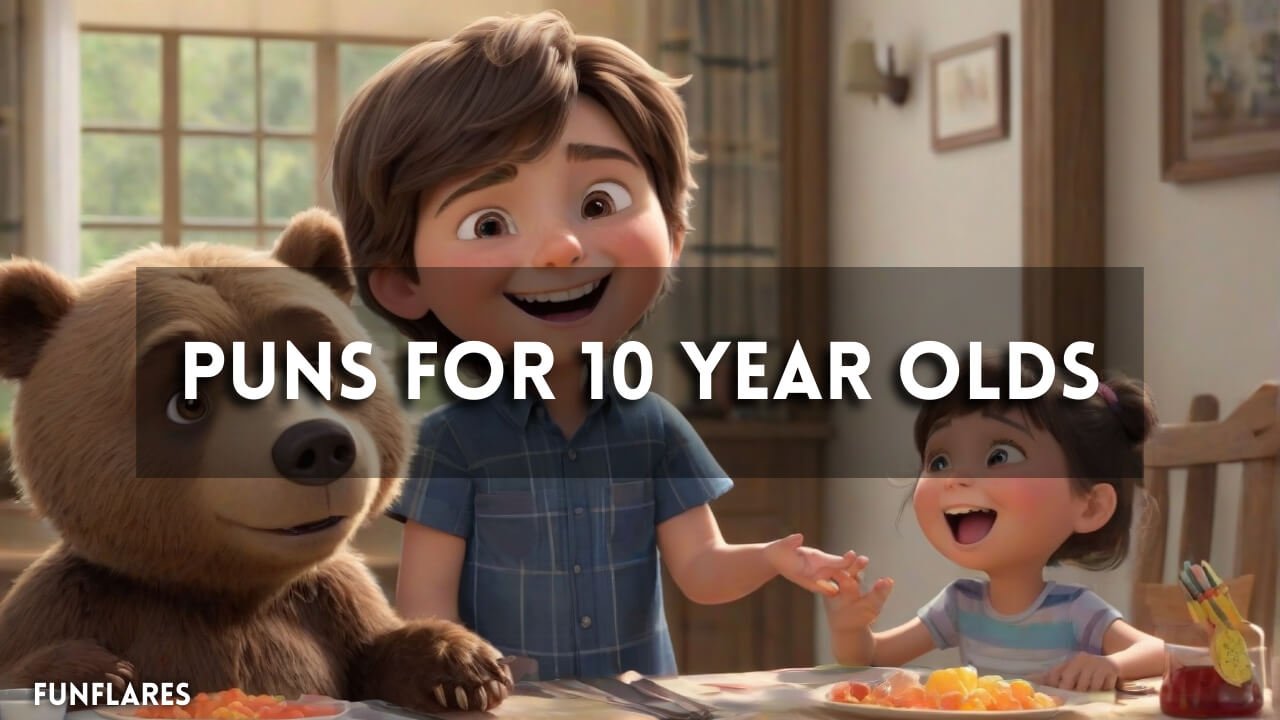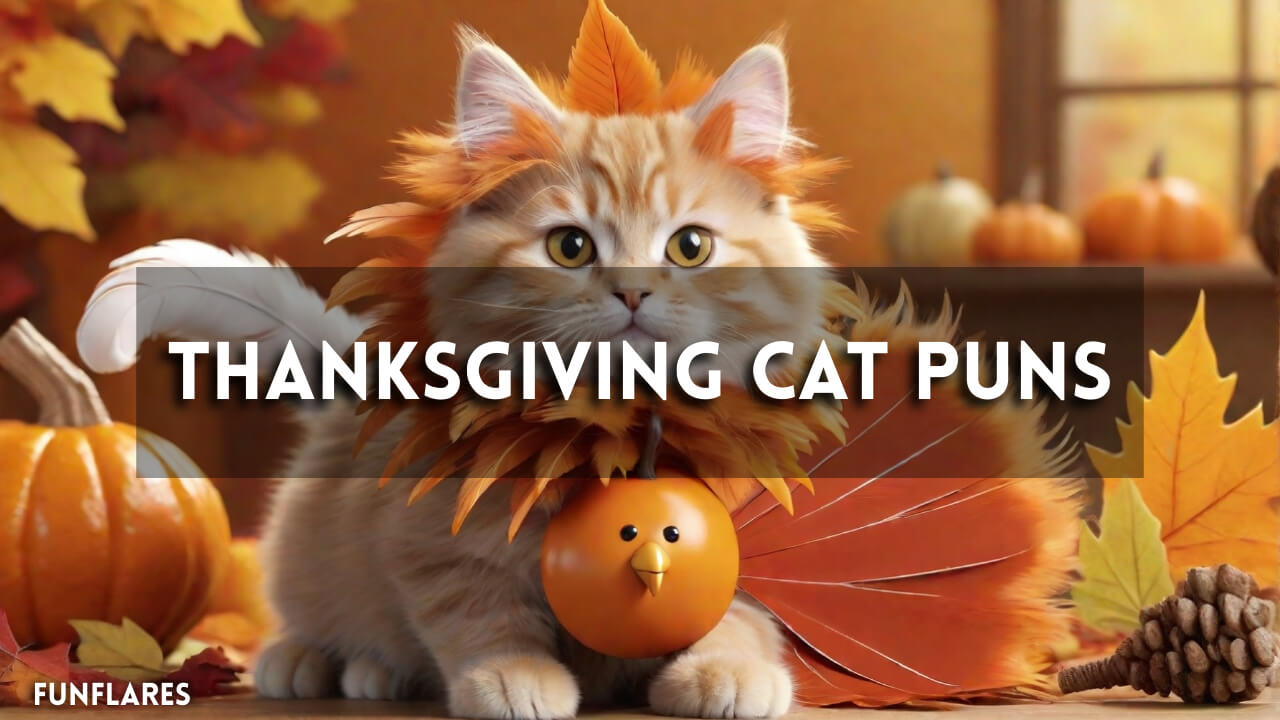Puns For 10-Year-Olds | Laughter and humor are essential for children’s development.
Research shows that humor contributes to a child’s cognitive development and social interaction.
Finding age-appropriate forms of humor can be key during formative years. Puns, or the humorous use of a word in a way that plays on its different meanings, are an excellent source of laughter for kids.
Their play on words makes them fun and educational for 10-year-olds. Puns allow children to engage with language in a creative way.
Mastering puns involves understanding the nuances between different meanings of the same word or phrases that sound alike.
This aids children in developing essential language skills. Sharing laughs over puns is a bonding experience. puns can be the purr-fect source of laughter for 10-year-olds.
Contents
Importance Of Puns For Cognitive Development
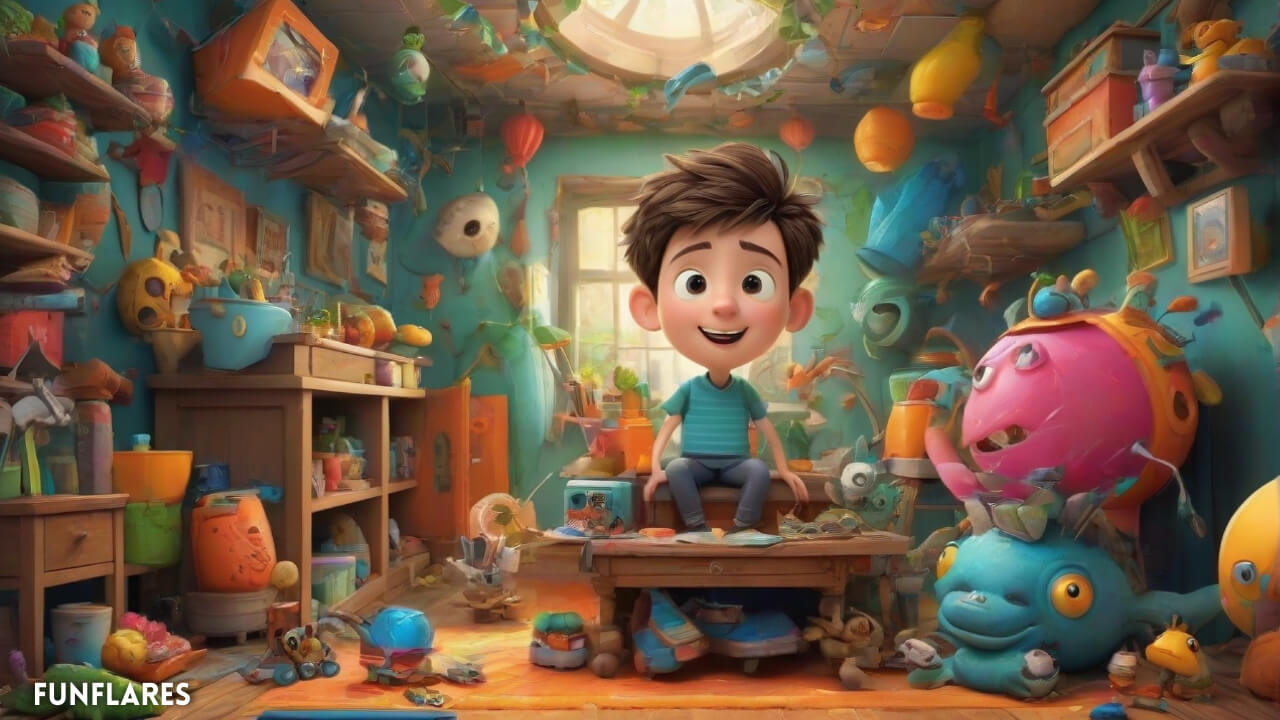
Puns can play an important role in a child’s cognitive development. Especially, puns help children better understand language nuances, wordplay, and double meanings.
According to a 2019 study published in the Journal of Child Language, order to puns and wordplay at a young age help children grasp refined linguistic concepts like polysemy and homonyms.
The researchers found that children who engaged with puns and jokes scored higher on tests of verbal comprehension.
Dr. Ruth Pearce, a professor of early childhood development, writes that “humor and language-based play such as puns give young children the opportunity to use words and sounds in a good way.”
She explains that this type of word manipulation encourages symbolic thinking and mind flexibility. Using puns can also introduce new vocabulary in a playful way.
A 2015 study by education researchers found that implanting new words in puns helped improve vocabulary recall compared to traditional memorization for elementary school children.
Puns give children a chance to play with words and expand their understanding of how language works.
The cognitive benefits lay the foundation for building communication skills. With guidance, puns can be used to promote cognitive growth in children.
Top Puns For 10-Year-Olds
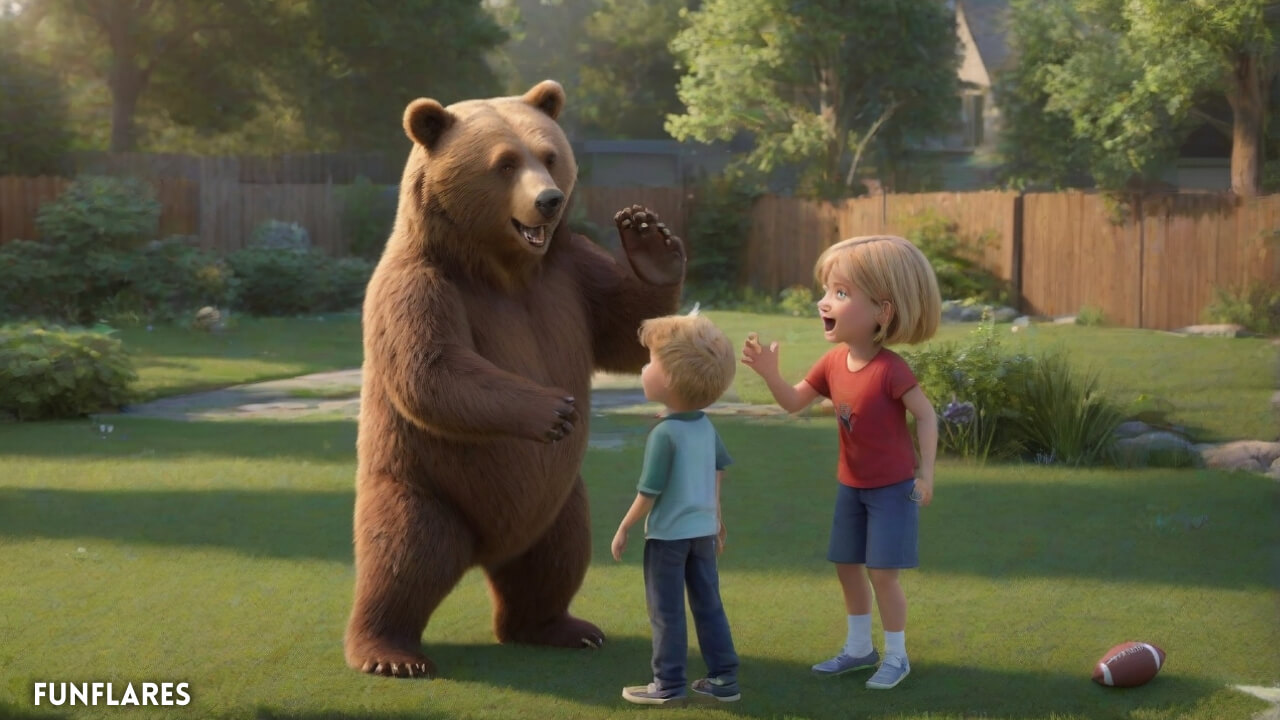
Animal Puns
- What do you call a bee that can’t make up its mind? A maybe!
- Why did the baby chick cross the road? To get to the other side!
- What do you get when you cross a tiger and a snowman? A frostbite!
- What do you call a sleeping bull? A bulldozer!
- Why don’t sharks like to eat clowns? They taste funny!
Food Puns
- What did the green grape say to the purple grape? Breathe! Breathe!
- What did the ocean say to the beach? Nothing, it just waved!
- Why did the banana go to the doctor? It wasn’t peeling well!
- Why did the tomato turn red? It saw the salad dressing!
- What do you call cheese that isn’t yours? Nacho cheese!
School Puns
- Why was the math book sad? It had too many problems!
- Why did the student eat his homework? The teacher told him it was a piece of cake!
- How do you make holy water? You boil the hell out of it!
- What do you call a droid that takes the long way around? R2 Detour!
- Why was the stadium so cool? It had a lot of fans!
Puns For Different Occasions

Puns can spice up a 10-year-old’s special occasions and daily interactions. Here are some great examples to get the fun started.
Birthday Puns
- I heard it’s someone’s birthday! There’s going to be a big cake. Or is it a small cake? No, I think it’s going to be a medium cake!
- Knock knock! Who’s there? Noah. Noah who? Noah-body is as old as you!
- What kind of beans don’t grow in a garden? Jelly beans!
- What do you get when you cross a skunk with a birthday cake? A smell-abrasion!
Holiday Puns
- What do you call an elf who just graduated? An elf-ucated elf!
- What falls at the North Pole but never gets hurt? Snow!
- What do you call an overweight reindeer? Butter!
- How do sheep say Merry Christmas? Fleece Navidad!
Everyday Conversation
- Did you hear about the cheese factory that exploded in France? There was nothing left but de Brie.
- I tried to catch some fog earlier. I mist.
- I used to have a fear of hurdles, but I got over it.
- Don’t trust atoms. They make up everything!
Encouraging Children To Create Their Own Puns
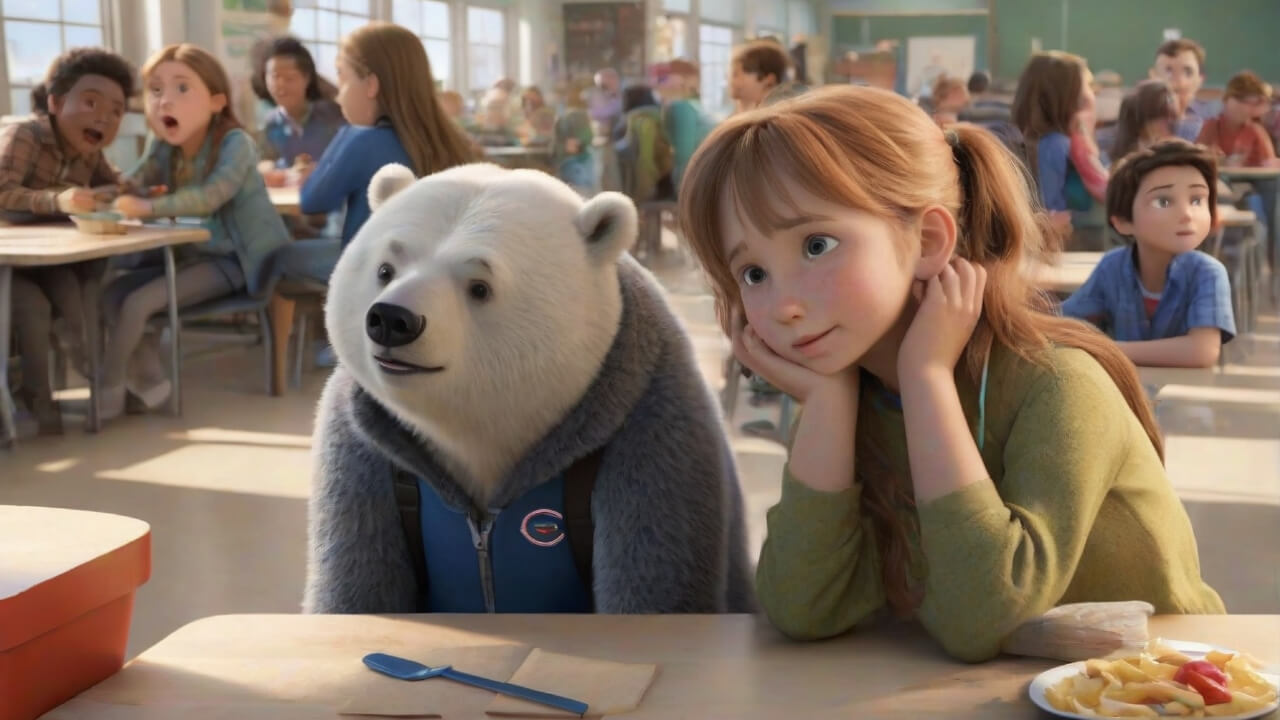
Puns are a great way to stimulate your child’s creativity and language skills.
Here are some tips for parents and teachers on how to encourage 10-year-olds to come up with their own punny jokes:
- When reading books together, point out any puns you come across and explain how they work. Challenge your child to come up with a similar pun of their own.
- During word games, focus on words that sound alike or have many meanings. See if your child can make a pun by playing with those words.
- Write down homophones or homonyms (words that sound alike or are spelled alike but have different meanings) and ask your child to create puns using those words.
- Gather headlines from newspapers or ads with short catchy phrases. Ask your child to give the headlines a punny twist.
- When having a conversation, try to slip in an intentional pun and see if your child notices it. Then ask them to respond back with a pun of their own.
- Praise your child when they come up with a clever pun on their own. This positive reinforcement will motivate them to continue honing their pun skills.
With some patience and encouragement, you can turn your 10-year-old into a budding punster.
The effort pays off by stimulating their mental agility and creativity. Plus, you’ll both get some laughs along the way.
Discovering The Joy Of Puns: FAQs On Puns For 10-Year-Olds
Why are puns good for 10-year-olds?
Puns are great for 10-year-olds because they stimulate their cognitive skills, encourage social interaction, and boost self-confidence. Joke-telling can be a fun and effective way to improve language skills.
What makes a good pun for a 10-year-old?
A good pun for a 10-year-old is one that they can understand and find funny. It should ideally play with words or themes they’re familiar with like everyday objects, animals, food, and basic situations.
Can puns help in a 10-year-old’s language development?
Puns can aid in a child’s language development. They introduce children to the concept of wordplay, enhance their vocabulary, and improve their understanding of different contexts and uses for words.
Are knock-knock puns suitable for 10-year-olds?
Knock-knock puns are not only suitable but also popular among 10-year-olds. They’re easy to understand and remember, making them an excellent choice for this age group.
How can you introduce puns to a 10-year-old?
Start by telling them simple, funny puns, and explain the pun if they don’t get it. As they become more comfortable with the concept, they’ll start appreciating them more.
What are some common themes for puns suitable for 10-year-olds?
Common themes for puns for 10-year-olds include animals, food, school, holidays, and everyday items.
What should parents be aware of when selecting puns for 10-year-olds?
Parents should aim to tell puns that are age-appropriate, avoid any that could be offensive or inappropriate, and ensure their child understands and enjoys the humor.
Why is it essential to practice the delivery of a pun?
Practicing the delivery of a pun is key to making it funny, as timing and expression play significant roles in humor. The more a child rehearses, the better they’ll become at telling puns.
Conclusion
Humor and laughter are essential parts of a happy, healthy childhood. As we’ve explored, age-proper puns provide an excellent opportunity for children to develop while also having fun.
The silly, nonsensical nature of puns helps stimulate creativity and imagination in young minds.
Beyond developing language skills, laughing together makes joyful connections between parents, teachers, and children.
Sharing puns and playful words can lead to memorable bonding moments you’ll both cherish. At the end of the day, laughter is one of the simplest joys in life.
I hope the collection of puns provided above helps spark positive interactions full of chuckles, giggles and grins in your home or classroom.
Share these punny jokes, laugh, and make the most of each precious moment spent with the 10-year-olds in your life.

